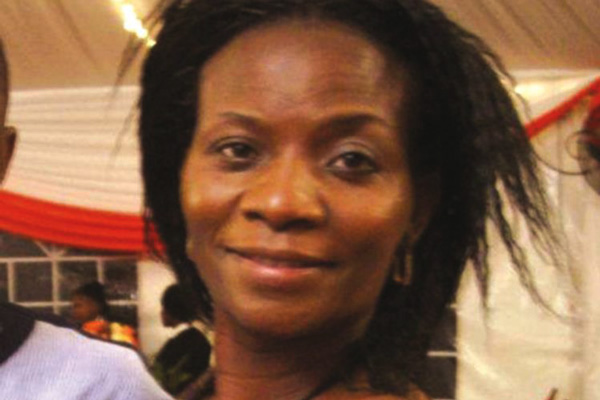
AIR Zimbabwe executive, Grace Pfumbidzayi says the five months she spent in prison was a horrific ordeal which still traumatises her.
By PAIDAMOYO MUZULU
“Prison is the worst place; it’s better to be dead because neighbours can come and sympathise with your family. It is different when you are facing serious allegations and the uneasiness that it brings. People find it difficult to discuss the issue with each other,” Pfumbidzayi said in a halting voice, choking with a suppressed urge to cry.
Pfumbidzayi spoke to The Standard exclusively at her home in Mount Pleasant, barely a week after she was released from Chikurubi Maximum Security Prison on $5 000 bail pending appeal on charges of criminal abuse of office.
It has been five months since her conviction at the Harare Magistrates Court where she was sentenced to seven years in prison with hard labour. She was found guilty of awarding Air Zimbabwe insurance portfolio to Navistar Insurance Brokers without going to tender.

“Life in prison is not a picnic and certainly, there is no executive wing in prison. It is structured particularly for discomfort and I guess that is the punishment,” she said, forcing a smile.
The national airline executive was left exposed after her conviction as she did not know how to interact with her children while in prison. To that end, she resolved that she would not see her children in the humiliating prison environment.
- Chamisa under fire over US$120K donation
- Mavhunga puts DeMbare into Chibuku quarterfinals
- Pension funds bet on Cabora Bassa oilfields
- Councils defy govt fire tender directive
Keep Reading
“Talking through the fence, I didn’t want to see my children in such a situation. For the five months that I was incarcerated, I took it badly and my health deteriorated very fast,” Pfumbidzayi said.
“The food is bad but the deterioration of my health was largely due to difficulties in adjusting to prison life and trying to cope with relinquishing the care and nurturing of my children to third parties.”
The prison meals were sadza and vegetables at lunch and sadza and beans for supper for the five months she was inside.
About her sentence, she said: “I was sentenced with hard labour so I worked in the garden. However, the general treatment I received was a bit more than the magistrate had prescribed and some of the prison officers are really nasty.”
“I hated it most when I got treatment that singled me out. The [good] treatment you get from one officer can cause resentment from another officer,” Pfumbidzayi added.
She said the worst thing in prison life was the psychological torture from wondering about developments outside.
“The psychological element is one thing the prison system should help manage among the prisoners. You start doubting whether people visiting you are telling you the whole truth, or if they are trying to shield you from the bad stuff at home. You can hear a message of death long after it happened,” said Pfumbidzayi.
She said it was long overdue that the prison infrastructure, personnel and competencies were overhauled.
In the middle of the grim narrative, she still found the energy to play a joke on herself on the day she was arrested in February 2014.
“The most hilarious moment after my arrest was that after having stayed in posh hotels across the world like the Ritz, Hilton, Holiday Inn and travelling in limousines, I then had a police officer asking which station cells I preferred to be booked into? The choice was limited to Matapi in Mbare, Rhodesville and Braeside,” she said with a chuckle.
Now that she is back home, Pfumbidzayi took the opportunity to thank the people who stood by her, but more importantly the schools her children go to.
“I don’t know how I will thank the headmasters and staff at Heritage and North Park schools for counselling my kids. Whatever they said had a positive effect on them. I am actually surprised that they are now doing better than when I was around,” she said.
“From the letters I got from my children while in prison, I knew that teachers did a good job counselling them and maybe the children had a reality check and realised education was very important.”
Pfumbidzayi said the best news she received while in prison was that she was to be out on bail pending appeal, allowing her to be back with her family.
“We are now happier than we have ever been in our life. We are neck deep in debt, legal fees and servicing of loans, but we will survive,” she said.
After being inside the prison system and experiencing its hard times and creating relations with both inmates and officers, she resolved: “I now want to contribute to organisations that deal with prison inmates’ welfare.”











